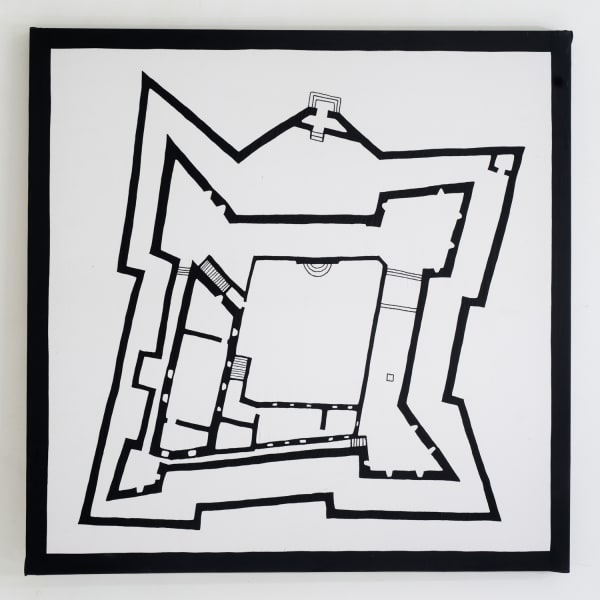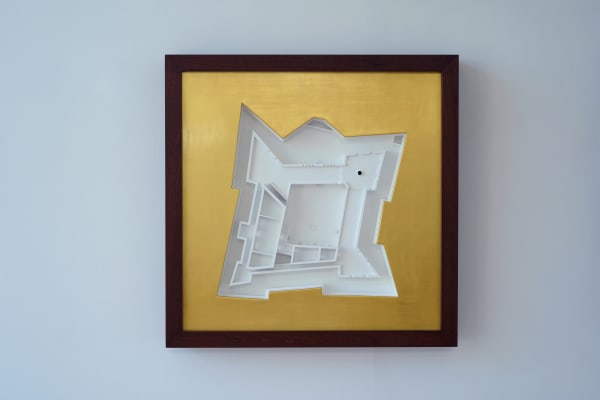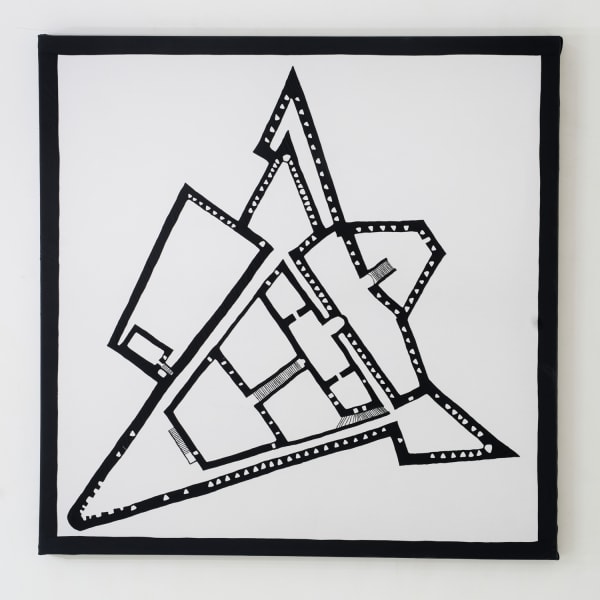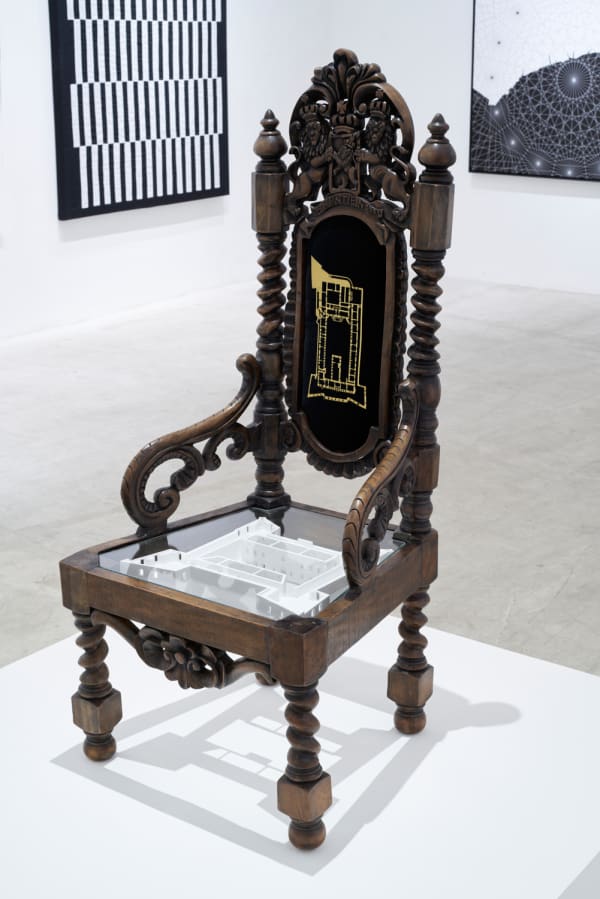Langlands & Bell-The Past is Never Dead…: Accra, Gallery II
Gallery 1957, Accra presents a solo exhibition by artist duo Langlands & Bell. Titled, “The Past is Never Dead…” the exhibition explores the architecture of the ‘Slave Forts’ built on the coast of Ghana by European traders following the construction of Elmina Castle by the Portuguese in 1482.
Ben Langlands & Nikki Bell have conducted extensive research into Ghana’s historic European-built coastal architecture. Created as fortified trading posts, these structures quickly became 'slave dungeons’, holding thousands of captives in appalling conditions before they were shipped to the Americas for a life of bondage and servitude. Today the forts bear witness to a shared history linking West Africa, the Americas, and Europe, which the artists describe as subject to a “wilful amnesia… forgotten especially (conveniently) in Europe”. Through site-exploration across Ghana, and further research at the Furley Collection, Balme Library, University of Legon, Accra, the Dutch National Archives, in The Hague, and The National Archives in London, their work for this exhibition reflects the artists’ continuing interest in the role strategic architecture plays in shaping all of our lives.
Working in a range of mediums and in collaboration with local artisans, Langlands & Bell will present a series of video, sculpture and appliqué works, some featuring the ground plans of the historic forts which bear similarity with Adinkra symbols - a traditional Akan visual language used extensively in Ghanaian fabrics and pottery. Restructuring the gallery space itself, the installation leads the viewer through the ‘Door of No Return’ modelled on the door at Elmina Castle which marked the final departure point of enslaved people from Ghana.
“These forbidding structures, of which more than 50 were built in Ghana and up to 20 remain, are concrete evidence of the relationships that existed between West Africa, Europe and the Americas over a period of almost four centuries. They are an important part of global history because they’re evidence of a global network of trade and economic and political relationships that evolved over centuries, and in many senses is still with us because it underlies so much of today’s world. They speak volumes; whether one is Ghanaian, European or American the forts have the power to connect each of us with our own past, our own history.”
The exhibition is curated by Jonathan Watkins, director of Ikon, Birmingham.
-
 Fort Good Hope (White)
Fort Good Hope (White) -
 Fort St Anthony, Axim
Fort St Anthony, Axim -
 Fort St Anthony (Black).
Fort St Anthony (Black). -
 Fort Good Hope, Senya Beraku
Fort Good Hope, Senya Beraku -
 English Fort, Komenda (White)
English Fort, Komenda (White) -
 English Fort, Komenda
English Fort, Komenda -
 Fort Good Hope (Black)
Fort Good Hope (Black) -
 Ghana Winds Chart
Ghana Winds Chart -
 Fort St Anthony (White).
Fort St Anthony (White). -
 Installation - 'The Past Is Never Dead...'
Installation - 'The Past Is Never Dead...' -
 The Governor's Chair, 2021. Installation - 'The Past Is Never Dead...'
The Governor's Chair, 2021. Installation - 'The Past Is Never Dead...' -
 Installation - 'The Past Is Never Dead...'
Installation - 'The Past Is Never Dead...'














